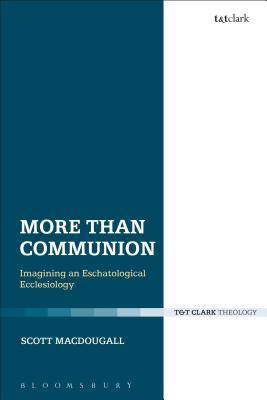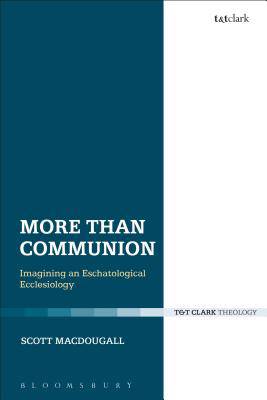
- Retrait gratuit dans votre magasin Club
- 7.000.000 titres dans notre catalogue
- Payer en toute sécurité
- Toujours un magasin près de chez vous
- Retrait gratuit dans votre magasin Club
- 7.000.0000 titres dans notre catalogue
- Payer en toute sécurité
- Toujours un magasin près de chez vous
296,95 €
+ 593 points
Format
Description
The dominant contemporary model for ecclesiology (theological views of the church itself) is the ecclesiology of communion. MacDougall argues that communion ecclesiologies are often marked by a problematic theological imagination of the future (eschatology). He argues further that, as a result, our ways of practising and being the church are not as robust as they might otherwise be. Re-imagining the church in the light of God's promised future, then, becomes a critical conceptual and practical task.
MacDougall presents a detailed exploration of what communion ecclesiologies are and some of the problems they raise. He offers two case studies of such theologies by examining how distinguished theologians John Zizioulas and John Milbank understand the church and the future, how these combine in their work, and the conceptual and practical implications of their perspectives. He then offers an alternative theological view and demonstrates the effects that such a shift would have. In doing so, MacDougall offers a proposal for recovering the 'more' to communion and to ecclesiology to help us imagine a church that is not beyond the world (as in Zizioulas) or over against the world (as in Milbank), but in and for the world in love and service. This concept is worked out in conversation with systematic theologians such as Jürgen Moltmann, Wolfhart Pannenberg, and Johannes Baptist Metz, and by engaging with a theology of Christian practices currently being developed by practical theologians such as Dorothy C. Bass, Craig Dykstra, and those associated with their ongoing project. The potential for the church to become an agent of discipleship, love, and service can best be realised when the church anticipates God's promised perfection in the full communion between God and humanity, among human beings, within human persons, and between humanity and the rest of creation.Spécifications
Parties prenantes
- Auteur(s) :
- Editeur:
Contenu
- Nombre de pages :
- 304
- Langue:
- Anglais
- Collection :
Caractéristiques
- EAN:
- 9780567659880
- Date de parution :
- 16-07-15
- Format:
- Livre relié
- Format numérique:
- Genaaid
- Dimensions :
- 160 mm x 239 mm
- Poids :
- 589 g

Les avis
Nous publions uniquement les avis qui respectent les conditions requises. Consultez nos conditions pour les avis.






